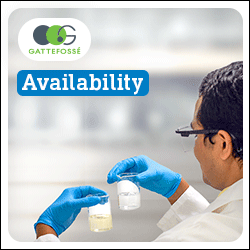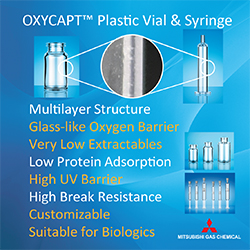Crinetics Pharmaceuticals Announces Dosing of First Patient in Phase 3 PATHFNDR-1 Study
Crinetics Pharmaceuticals, Inc. recently announced the randomization of the first acromegaly patient in its Phase 3 clinical trial of paltusotine, PATHFNDR-1. This trial will be one of two planned Phase 3 studies assessing the safety and efficacy of once-daily oral paltusotine in acromegaly patients that together will evaluate paltusotine in a wide cross section of acromegaly patients. If successful, Crinetics believes its Phase 3 program could support registration of paltusotine in the United States and Europe for all acromegaly patients who require pharmacotherapy.
“The dosing of the first patient in the PATHFNDR program represents a key step in paltusotine’s clinical development. We believe that, if successful, these trials would support paltusotine’s approval as the first nonpeptide, oral alternative to the injected standard of care for the treatment of acromegaly,” said Alan Krasner, MD, Crinetics’ Chief Medical Officer. “Our goal for paltusotine is to provide a once daily oral option for acromegaly patients that can help control excess hormone levels while at the same time relieving the burden and pain of currently available therapies.”
“This is the first product candidate in our emerging endocrine pipeline to reach Phase 3 clinical trials. I am very proud of the team that created paltusotine and facilitated its development to this stage,” added Scott Struthers, PhD, founder and Chief Executive Officer of Crinetics. “We are now focused on completing these trials and, if approved, making paltusotine available to acromegaly patients around the world. At the same time, we remain committed to advancing our pipeline of nonpeptide product candidates for endocrine patients and investing in our small molecule discovery approach to continue to grow that pipeline.”
PATHFNDR-1 (NCT04837040) is planned to enroll 52 patients with acromegaly who are biochemically controlled, meaning insulin-like growth factor-1 (IGF-1) ≤ 1.0x upper limit of normal (ULN), on octreotide or lanreotide depot monotherapy. Following a screening period, during which baseline values for IGF-1, growth hormone (GH) and total Acromegaly Symptom Diary Score will be determined, participants will be randomized 1-to-1 to receive once-daily oral paltusotine or placebo for nine months. The primary endpoint in PATHFNDR-1 will be the proportion of patients who are biochemically controlled during weeks 32-36. For statistical success on the trial’s primary endpoint, paltusotine needs to demonstrate superiority to placebo in this responder analysis. All eligible patients will have the option to participate in an open-label extension study following conclusion of the PATHFNDR-1 treatment period. Topline data from the PATHFNDR-1 trial is expected to be available in 2023.
Acromegaly is a serious disease generally caused by a pituitary adenoma, a benign tumor in the pituitary that secretes growth hormone. Excess GH secretion causes excess secretion of IGF-1 from the liver. Together, excess of these hormones leads to the symptoms and physician manifestations of acromegaly, including abnormal growth of hands and feet, alteration of facial features, arthritis, carpal tunnel syndrome, joint aches, deepening of voice due to enlarged vocal cords, fatigue, sleep apnea, enlargement of heart, liver and other organs, and changes in glucose and lipid metabolism.
Surgical removal of pituitary adenomas, if possible, is the preferred initial treatment for most acromegaly patients. Pharmacological treatments are used for patients that are not candidates for surgery, or when surgery is unsuccessful in achieving treatment goals. Approximately 50% of patients with acromegaly prove to be candidates for pharmacological treatment. Long-acting somatostatin-receptor ligands (SRLs) are the most common initial pharmacologic treatment, however these drugs require monthly depot injections with large gauge needles that are commonly associated with pain, injection site reactions, and increased burden of therapy on the lives of patients.
Paltusotine is an investigational, orally available nonpeptide agonist that is designed to be highly selective for the somatostatin receptor type 2 (SST2). It was designed by the Crinetics discovery team to provide a once-daily option for patients with acromegaly and neuroendocrine tumors. A previously completed Phase 1 trial of paltusotine showed clinical proof of concept by providing evidence of potent suppression of the growth hormone axis in healthy volunteers. In Phase 2 trials, paltusotine maintained IGF-1 levels in acromegaly patients who switched from injectable depot medications to once-daily oral paltusotine. IGF-1 is the primary biomarker endocrinologists use to manage their acromegaly patients.
Crinetics Pharmaceuticals is a clinical stage pharmaceutical company focused on the discovery, development, and commercialization of novel therapeutics for rare endocrine diseases and endocrine-related tumors. The company’s lead product candidate, paltusotine, is an investigational, oral, selective nonpeptide somatostatin receptor type 2 agonist for the treatment of acromegaly, an orphan disease affecting more than 26,000 people in the US. A Phase 3 program to evaluate safety and efficacy of paltusotine for the treatment of acromegaly is underway. Crinetics also plans to advance paltusotine into a Phase 2 trial for the treatment of carcinoid syndrome associated with neuroendocrine tumors. The company is also developing CRN04777, an investigational, oral, nonpeptide somatostatin receptor type 5 (SST5) agonist for congenital hyperinsulinism, as well as CRN04894, an investigational, oral, nonpeptide ACTH antagonist for the treatment of Cushing’s disease, congenital adrenal hyperplasia, and other diseases of excess ACTH. All of the company’s drug candidates are new chemical entities resulting from in-house drug discovery efforts and are wholly owned by the company.
Total Page Views: 865













